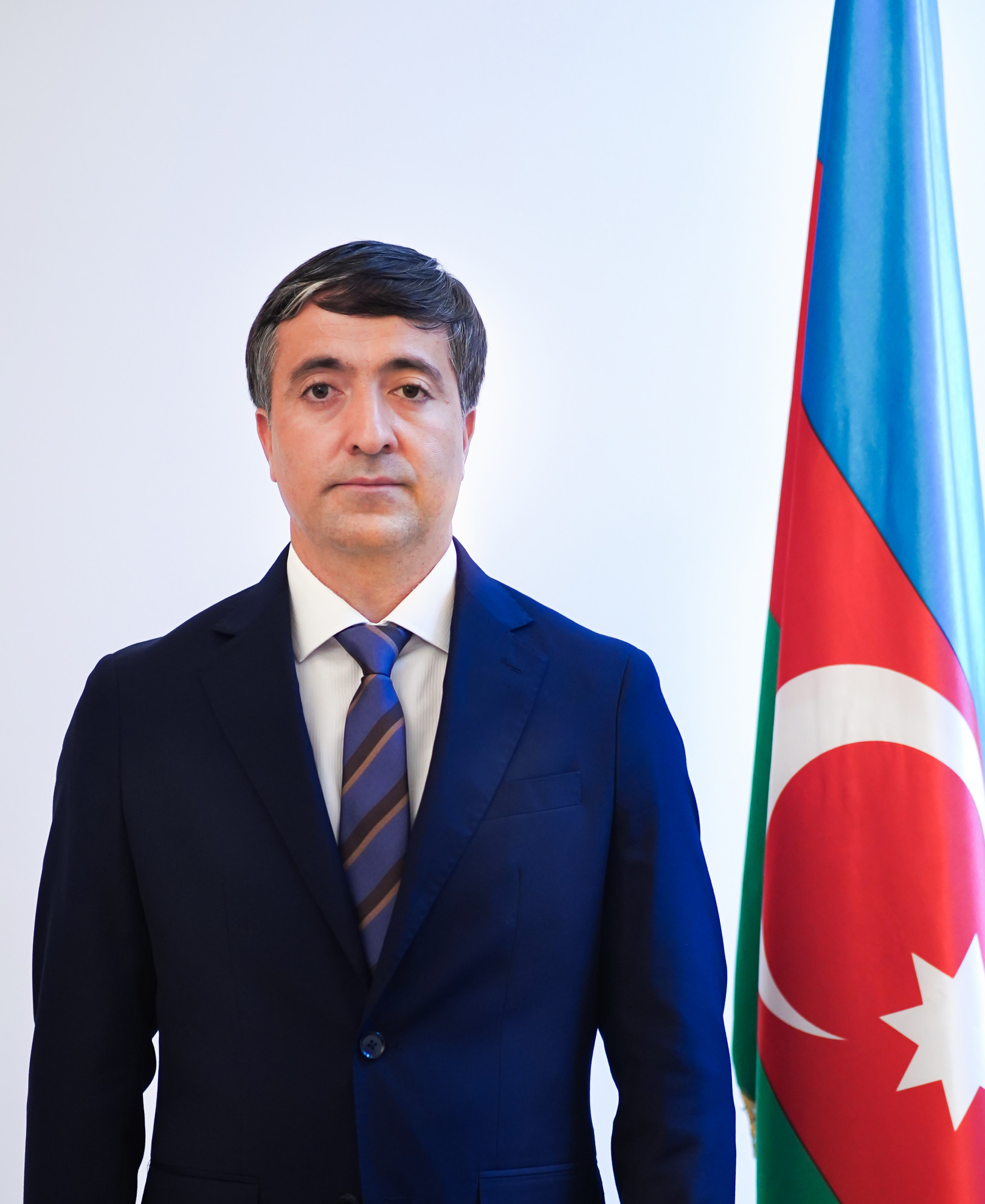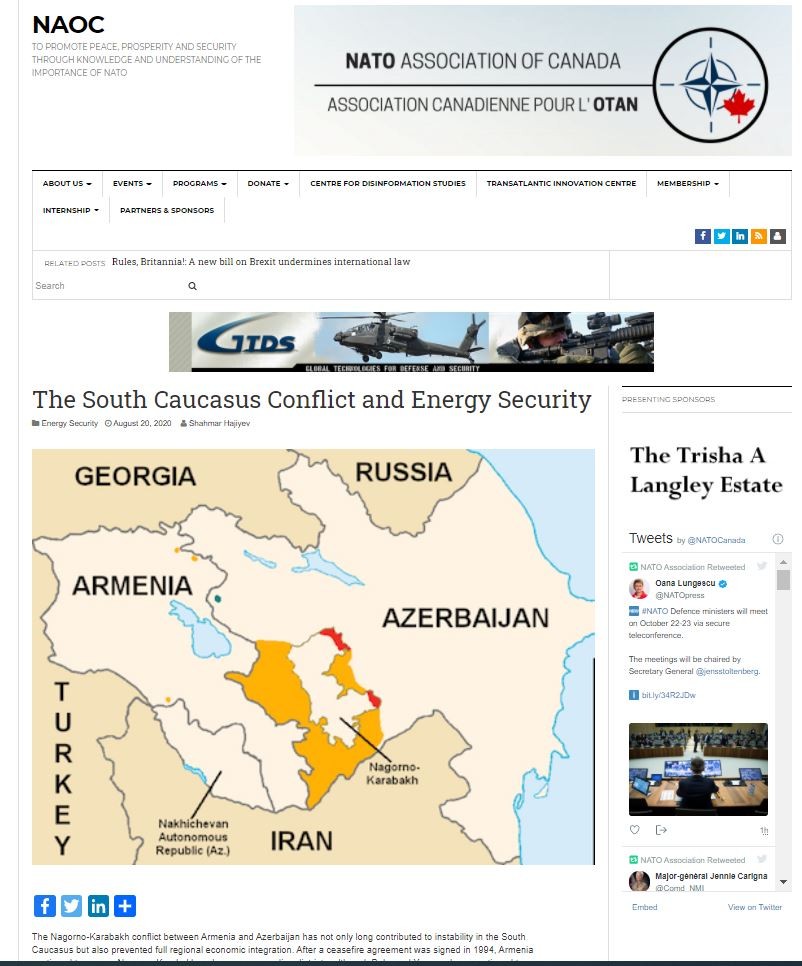The Nagorno-Karabakh conflict between Armenia and Azerbaijan has not only long contributed to instability in the South Caucasus but also prevented full regional economic integration. After a ceasefire agreement was signed in 1994, Armenia continued to occupy Nagorno-Karabakh and seven surrounding districts, although Baku and Yerevan have continued to pursue a diplomatic settlement through the OSCE “Minsk Group”, co-presided by France, Russia and the United States.
Unfortunately, diplomatic talks mediated by the Minsk Group remain inconclusive. The current status quo in the conflict is favourable to Armenia. Illegal economic activities and settlement policy carried out by Armenia in the occupied Azerbaijani territories are contrary to the core principles of the OSCE and the UN. For instance many Armenian banks—such as Armbusinessbank, Armeconombank, and others—operate in the occupied territories. Mobile operators such as Armentel (a subsidiary of the Russian Vimpelcom under the “Beeline” brand) and Orange Armenia (a subsidiary of Orange Group France) operate there as well.
In addition, Armenia strongly supports the energy security of the occupied territories. Gazprom Armenia, which is Armenia’s natural gas supplier and distributor, includes the occupied territories in its gas distribution network. The management of two energy-producing enterprises (“Artsakhgas” and “Artsakhenergo”) have been set up in the occupied territories and placed under the control of AEG Company, which is registered in Armenia and was tasked with integrating those territories’ energy-supply system with Armenia’s. There are also illegal settlements, as in the case of the occupied Kalbajar region, where, as of August 2020, fifteen new houses have been constructed.
The status quo in the long-running conflict is unsustainable, so there was hope for a peaceful resolution following a change in government in Armenia in 2018. Several meetings between Azerbaijani President Ilham Aliyev and Armenia’s new Prime Minister Nikol Pashinyan, however, did not succeed in resolving outstanding problems within a peaceful framework respecting international law.
The first serious military confrontation between Armenia and Azerbaijan since the four-day April 2016 war took place on 12 July 2020, when Armenian military forces shelled the Tovuz region of Azerbaijan. Artillery fire killed one civilian and several soldiers on the Azerbaijani side, and Armenia also suffered military casualities. Yet any escalation only damages the peace process while sending negotiations down a blind alley.
Why would Armenia attack Azerbaijan in the Tovuz region directly on the Azerbaijan-Armenia border, so far away from Nagorno-Karabakh? One view is that an important goal was to threaten inter-regional energy projects located near the conflict zone. The security of the major Baku-Tbilisi-Ceyhan (BTC) and Baku-Supsa oil pipelines, as well as of the South Caucasus Pipeline (SCP, also called the Baku-Tbilisi-Erzurum pipeline) for natural gas, were put under threat.
From the mid-1990s Azerbaijan has supported regional economic integration, promoted international energy cooperation, and initiated wide-ranging projects for carrying Caspian crude oil and natural gas to global energy markets. First the country managed to export its Azeri Light brand oil to international energy markets via the Baku-Supsa pipeline through Georgia, and then it assured the construction of regular operation of the BTC oil pipeline. From a geoeconomic standpoint, the export of Azerbaijani energy resources to the Black Sea region via Georgia was a rational choice,
The realization of the project was a political and economic victory for both Georgia and Azerbaijan. Azerbaijan aimed to export its Azeri Light oil directly to the global energy markets without mixing it with Russia’s lower-quality “Urals” branded oil, which a different export route would have required. Georgia became a transit country and a bridge connecting Caspian energy resources with global energy markets. The Baku-Supsa oil pipeline opened a very important door for Georgia, enabling it to participate in future energy projects.
By opening up opportunities for Azerbaijan to export its oil to Western energy markets while bypassing Russia, the BTC pipeline opened up a new era for Azerbaijan’s economic development. No longer dependent on Russia for oil export, it could rely on Georgia and Turkey to connect it with Western energy markets.
From a geopolitical point of view, it was moreover the first project connecting the South Caucasus countries more closely with the Western world in general. It pointed toward the integration of Azerbaijan and Georgia with Europe and contributed to their economic, political, and energy security, as well as to Europe’s security of energy supply.
Between June 2006, when the pipeline became operational, and the end of the first quarter of this year, it had exported a total of 3.41 billion barrels of crude oil to global markets, including Israel. Azerbaijan’s energy cooperation with Israel has become vitally importance for Israel’s energy security, and it has given Azerbaijan the opportunity to build a special relationship with Israel. Azerbaijan supplies about 40–45 percent of Israel’s oil demand via the BTC pipeline.
Today, Azerbaijan is also becoming an important net gas producer. The country is interested in deepening further its energy relations with the West. The discovery of the giant offshore Shah Deniz field in the late 1990s gave the original impetus to this initiative. To export Caspian gas to European energy markets, Azerbaijan initiated another energy mega-project, the Southern Gas Corridor (SGC), running from Baku through Georgia, Turkey, Greece, and Albania, ending in southern Italy. The total length of all segments will be 3,500 kilometres.
The European part of the SGC is called the Trans-Adriatic Pipeline (TAP), and SGC is on schedule to begin delivering gas to Europe this year. It should be underlined that even the COVID-19 pandemic could not prevent the implementation of this project and, by the end of May this year, the TAP project was 96 percent complete. Azerbaijani natural gas, representing the first delivery, has been already introduced into a four-kilometre section of the pipeline in Albania, between the Greek-Albanian border and up to the TAP metering station in Bilisht on 20 May 2020.
Armenia’s attack in the direction of Tovuz on the border between Azerbaijan and Armenia, well distant from Nagorno-Karabakh, could be characterized as a threat to these important energy projects, not just to the SGC but also to the BTC pipeline and the Baku-Tbilisi-Kars railway.
Beginning in the 1990s, Armenia has isolated itself from such co-operative integration projects.
The people of both Armenia and Azerbaijan have suffered from the Nagorno-Karabakh conflict. It is now time to restore peace between the warring parties. Yet not only the July 2020 clashes, but also the recent remarks by Prime Minister Nikol Pashinyan to the BBC radio program Hard Talk, indicate that the Armenian government still lacks a balanced position on how to resolve the conflict.
Azerbaijan is a reliable partner for the West and contributes to Europe’s energy security. All the aforementioned pipeline projects allowed Azerbaijan to bypass Russia while exporting its natural resources to global energy markets. The current situation in the South Caucasus, especially between Azerbaijan and Armenia, prevents the region’s full integration and puts inter-regional projects at increased risk. Azerbaijan seeks real and serious progress toward a resolution of Armenia’s conflict with it.
http://natoassociation.ca/the-south-caucasus-conflict-and-energy-security/








